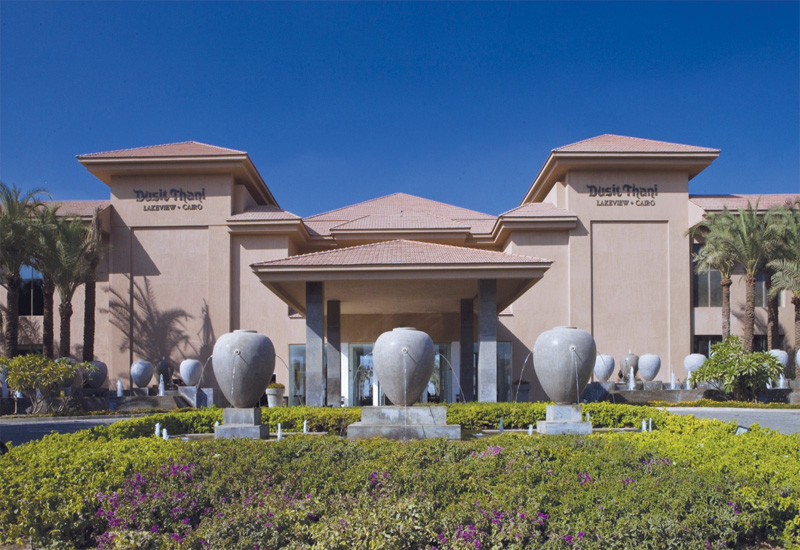 Dusit Thani LakeView Cairo: occupancy at this new hotel dropped from 90% to 10% during the protests.
Dusit Thani LakeView Cairo: occupancy at this new hotel dropped from 90% to 10% during the protests.
Hotel Repositioning
Temporary value adds may well be a good short term solution to the current situation, but PKF The Consulting House director and head of consulting Sven Gade suggested some potential benefits of taking a more long term view.
“Tourism is a very important sector in Egypt and will most likely bounce back as one of the first segments, but maybe Egypt will now have a chance to genuinely address the long standing issue of moving from total volume tourism towards some more upmarket spend-oriented products,” said Gade.
“It is true that discounting is a weak option as it has a long term impact (especially in the tour operator segments) — but in the past this has been the typical reaction, not least because so many people directly depend on tourist arrivals.

| Advertisement |
“Hotels and projects that can afford it should grab the opportunity to reposition themselves into a slightly more upmarket and clearly defined segment to avoid that trap going forward,” he advised.
“That, however, requires the necessary resources to avoid discounted business and where appropriate, investing in improving or renovating facilities, which is not easy after a crisis,” Gade qualified.
He also suggested that, while the tourism ministry and authorities “take stock and determine the future”, interim solutions could involve creating “calm” areas — such as the North Coast, Luxor Nile Delta and areas around the historic sites — and promoting them as safe “havens” with some strong PR.
“There may even be an opportunity to increase rates for what business comes forward on the argument that creating these havens will require extra investment and expense,” said Gade.
Clever destination marketing was also advocated by Viability director Guy Wilkinson. “After the Taba attacks that took place in 2004, clever marketing saw the Sinai hotels promoted without mention of the country Egypt, and such ploys could be needed again,” asserted Wilkinson.
Peter Lilley, executive director of the Middle East & North Africa Travel Association (MENATA), agreed such tactics could work.
“The Red Sea riviera is seen as being very detached from the political turmoil. A lot of holidaymakers don’t even think of resorts like Sharm El Sheikh as being in Egypt,” reported Lilley.
Tourism Marketing
Whatever the strategy adopted by Egypt’s hotels to attract visitors, there is no doubt that most existing properties will rely heavily on support from tourism boards across the region - a joined up effort is vital.
But Lilley said tourism boards in the region were “burying their heads in the sand” when it came to communication on the situation.
“I have to say I’ve been disappointed at how some tourist offices (including Tunisia and Egypt) have appeared to bury their heads in the sand during recent events; declining to make any public comments.
“It comes across as rather spineless. When there is a crisis, what both trade and consumers seek is accurate information, reassurance and people being brave enough to show their faces; still talking - even in very difficult times. They don’t like people who hide themselves away and only reappear once the dust has settled.”
He said it was vital that tourism boards across the region invested in PR and advertising campaigns in order to get their message across and reassure potential visitors.
Lilley added that the entire MENA region tourism industry needs to work more closely to bring back the tourists turned away following the protests in the region.
“Everyone should be supporting each other and promoting the bigger picture — namely the attractions of the MENA region tourism industry as a whole, rather than companies being too insular and thinking entirely of their own tour operation,” concluded Lilley.








 Search our database of more than 2,700 industry companies
Search our database of more than 2,700 industry companies









